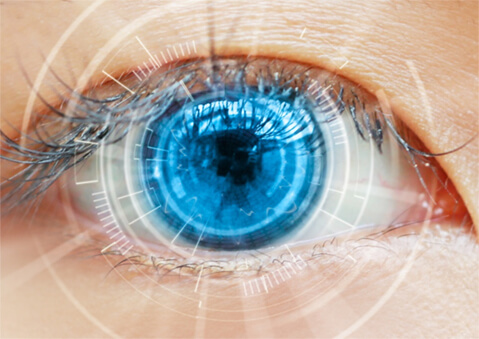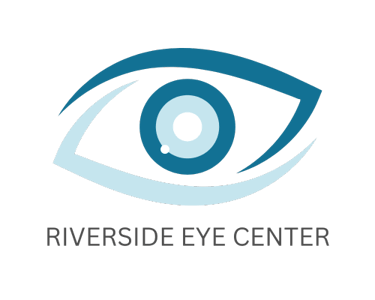
COMPREHENSIVE
Eye Care
Taking care of your eyes is essential for maintaining clear vision and overall eye health. Comprehensive eye care involves more than just correcting vision problems—it's about catching potential issues early through annual eye exams and choosing the right corrective options. In this blog post, we’ll discuss why annual eye exams are important, explore common refractive errors like myopia, hyperopia, presbyopia, and astigmatism, and highlight the best vision correction options like glasses, contact lenses, and refractive surgery.
Why Annual Eye Exams Are Crucial for Your Eye Health
Annual eye exams are essential for maintaining healthy vision. Even if you’re not experiencing any noticeable issues, an eye exam can detect early signs of eye diseases such as glaucoma, cataracts, and macular degeneration, which may not show symptoms until significant damage has occurred. Early detection is key to preventing permanent vision loss and other complications.
In addition to diagnosing and treating existing eye conditions, eye exams also play a vital role in preventative care. By assessing your overall eye health, your optometrist or ophthalmologist can provide advice on lifestyle changes and diet to help preserve your vision long-term. Regular eye checkups also allow your eye care professional to update your prescription for glasses or contact lenses to ensure optimal vision.
Understanding Refractive Errors: Myopia, Hyperopia, Presbyopia, and Astigmatism
Refractive errors are among the most common reasons for visiting an eye doctor. These conditions occur when the shape of the eye prevents light from focusing properly on the retina, resulting in blurred vision. Here’s a look at the four most common refractive errors:
Myopia (Nearsightedness): Myopia makes distant objects appear blurry, while close-up vision remains clear. It happens when the eye is too long or the cornea has too much curvature. Myopia is prevalent in both children and adults and can be corrected with glasses or contact lenses. In some cases, refractive surgery like LASIK can offer a permanent solution.
Hyperopia (Farsightedness): Hyperopia causes difficulty focusing on nearby objects, while distant objects may remain clear. This condition occurs when the eye is too short or the cornea is too flat. People with hyperopia often experience eye strain when reading or using a computer for long periods. Like myopia, hyperopia can be treated with glasses, contact lenses, or refractive surgery.
Presbyopia (Age-Related Vision Loss): Presbyopia is an age-related condition that typically begins around the age of 40. It causes difficulty focusing on close-up objects, making activities like reading, computer work, or sewing harder to perform. This happens because the eye’s lens becomes less flexible over time. Presbyopia is usually corrected with reading glasses, bifocals, progressive lenses, or multifocal contact lenses.
Astigmatism: Astigmatism occurs when the cornea or lens is irregularly shaped, resulting in blurred or distorted vision. Astigmatism can affect both near and distant vision, causing difficulty reading or seeing clearly at any distance. Glasses and contact lenses designed specifically for astigmatism, as well as refractive surgery, can help correct this condition.
Vision Correction Options for Refractive Errors
If you’re dealing with a refractive error, there are several vision correction options available to restore clear vision and improve your quality of life.
Eyeglasses: Glasses are the most common and non-invasive solution for correcting refractive errors. Whether you have myopia, hyperopia, presbyopia, or astigmatism, there are lenses designed to fit your needs. Modern frames come in a variety of styles, colors, and materials, allowing you to find a pair that fits both your vision needs and personal style.
Contact Lenses: Contact lenses are another popular option for vision correction. Unlike glasses, contacts sit directly on your eye, offering a wider field of vision and freedom from the weight or discomfort of glasses. There are various types of contact lenses, including daily, bi-weekly, monthly, and toric lenses for astigmatism. Contact lenses are a great choice for those with active lifestyles or anyone who prefers a more discreet option.
Refractive Surgery (LASIK, PRK, and More): For those seeking a long-term solution, refractive surgery is a highly effective option. LASIK (Laser-Assisted in Situ Keratomileusis) is the most well-known procedure, reshaping the cornea to improve light focusing. PRK (Photorefractive Keratectomy) is another surgery option for correcting refractive errors, particularly for those with thinner corneas. Both surgeries are safe and effective for treating myopia, hyperopia, and astigmatism. SMILE (Small Incision Lenticule Extraction) is another advanced surgical method for vision correction that’s becoming increasingly popular.
How to Choose the Right Vision Correction Option for You
Choosing the right vision correction option depends on factors like the type of refractive error you have, your lifestyle, your age, and your personal preferences. Glasses are ideal for those seeking a simple and cost-effective solution, while contact lenses are great for individuals who want to avoid wearing glasses. Refractive surgery can provide permanent results for those who qualify and are willing to undergo the procedure.
To determine the best option for you, it’s essential to consult with an eye care professional who can evaluate your eye health and recommend the most appropriate treatment.
Final Thoughts on Comprehensive Eye Care
Your eyes are invaluable, and taking proactive steps to care for them can make a big difference in maintaining healthy vision throughout your life. Annual eye exams are essential not only for diagnosing refractive errors like myopia, hyperopia, presbyopia, and astigmatism, but also for catching early signs of other serious eye conditions. With a variety of corrective options available—whether it's glasses, contact lenses, or refractive surgery—you can find a solution that fits your needs and helps you maintain clear, sharp vision.
Don't wait until vision problems interfere with your daily life—schedule an eye exam today and make sure your eyes stay healthy for years to come. Your vision is worth it!
Comprehensive Eye Care:
The Importance of Annual Eye Exams & Vision Correction Options










© 2025. All rights reserved.
